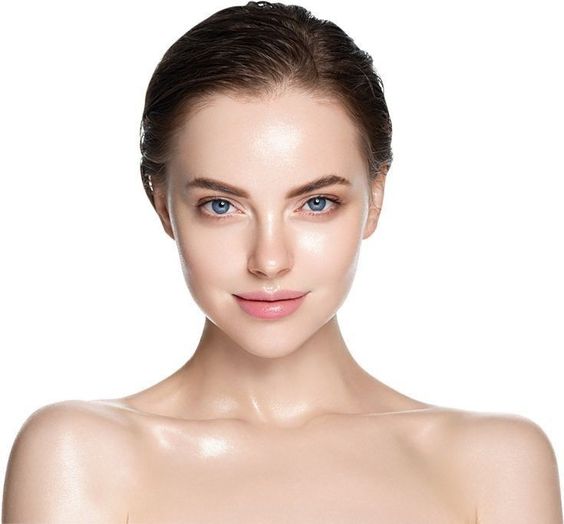Amazingly Awesome and Sexy things you Should Know About Your Skin
Your skin is your body’s largest organ, acting as a protective barrier. It constantly regenerates, keeping you healthy and glowing.
Your skin plays a crucial role in overall health and beauty. It shields you from harmful environmental factors and helps regulate body temperature. Proper skincare is essential for maintaining its health and appearance. Regular cleansing, moisturizing, and sun protection can keep your skin looking vibrant.
A balanced diet rich in vitamins and minerals also supports skin health. Hydration is key; drink plenty of water. Avoid excessive sun exposure and use sunscreen daily. Your skin reflects your lifestyle choices, so healthy habits lead to radiant skin. Embrace a skincare routine that suits your needs for long-term benefits. Let’s learn Amazingly Awesome and Sexy things you Should Know About Your Skin.
Skin Basics
Your skin is amazingly awesome and sexy! It’s the body’s largest organ and has some fascinating features. Understanding the basics of your skin can help you take better care of it. Let’s dive into the skin basics and discover the layers and functions of this incredible organ.
Layers Of Skin
Your skin has three main layers: the epidermis, dermis, and hypodermis. Each layer plays a unique role in protecting and supporting your body.
- Epidermis: This is the outermost layer. It provides a waterproof barrier and creates our skin tone. It contains cells called keratinocytes, which produce keratin.
- Dermis: Located beneath the epidermis, this layer contains tough connective tissue, hair follicles, and sweat glands. It provides strength and flexibility to the skin.
- Hypodermis: The deepest layer, also known as subcutaneous tissue. It consists of fat and connective tissue that insulates the body and absorbs shock.
Here’s a quick breakdown of these layers in a table:
| Layer | Location | Main Components |
|---|---|---|
| Epidermis | Outermost | Keratinocytes |
| Dermis | Middle | Connective tissue, hair follicles, sweat glands |
| Hypodermis | Deepest | Fat, connective tissue |
Functions Of Skin
Your skin performs several vital functions that keep you healthy and safe. Here are some key functions:
- Protection: The skin acts as a barrier against harmful microbes, chemicals, and physical injuries.
- Regulation: It helps regulate body temperature through sweat and blood flow.
- Sensation: The skin contains nerve endings that allow you to feel touch, heat, and cold.
- Excretion: Sweat glands in the skin help remove waste products from the body.
- Synthesis: The skin synthesizes vitamin D when exposed to sunlight, essential for bone health.
Let’s summarize these functions in a simple list:
- Protection from external threats
- Temperature regulation
- Sensory reception
- Waste excretion
- Vitamin D synthesis
Understanding these functions can help you appreciate the importance of caring for your skin. It’s not just about looking good; it’s about staying healthy and protected.

Credit: bendderm.com
Skin Types
Our skin is more than just a protective barrier; it’s a reflection of our health and well-being. Understanding your skin type is crucial for its care. Each skin type has unique needs and characteristics. Learning about your skin type helps you choose the right products and routines, ensuring your skin stays vibrant and healthy.
Also Read: 11 Very Urgent Summer Skincare For Oily Skin: Mustn’t Avoid
Identifying Your Skin Type
Determining your skin type is essential for effective skincare. Below are the primary skin types and their defining features:
- Oily Skin: Your skin feels greasy, especially in the T-zone (forehead, nose, and chin). You might notice large pores and frequent acne breakouts.
- Dry Skin: Your skin feels tight and may have flaky patches. It lacks natural oils and might be more prone to fine lines.
- Combination Skin: Your skin is oily in some areas (usually the T-zone) and dry in others. You might struggle to balance moisture and oil control.
- Normal Skin: Your skin is balanced, not too oily or dry. You rarely experience breakouts and your pores are not very visible.
- Sensitive Skin: Your skin reacts easily to products and environmental factors. You may experience redness, itching, or burning sensations.
Caring For Each Type
Each skin type requires a specific care routine. Here’s how to care for each:
| Skin Type | Care Tips |
|---|---|
| Oily Skin |
|
| Dry Skin |
|
| Combination Skin |
|
| Normal Skin |
|
| Sensitive Skin |
|
Common Skin Issues
Your skin is an amazing organ. It protects you and keeps you looking youthful and vibrant. But sometimes, common skin issues can make you feel less confident. Understanding these issues can help you take better care of your skin and keep it looking its best.
Acne And Blemishes
Acne and blemishes are common skin issues that affect many people. They can be frustrating, but there are ways to manage and even prevent them.
Acne occurs when hair follicles become clogged with oil and dead skin cells. This can lead to whiteheads, blackheads, or pimples. Here are some tips to manage acne:
- Wash your face twice daily with a gentle cleanser.
- Avoid touching your face with dirty hands.
- Use non-comedogenic makeup and skincare products.
- Stay hydrated and eat a balanced diet.
Blemishes are marks or spots on the skin. They can be caused by acne, sun exposure, or other factors. Here are some ways to reduce blemishes:
- Use products with ingredients like salicylic acid or benzoyl peroxide.
- Apply sunscreen daily to protect your skin from UV rays.
- Exfoliate regularly to remove dead skin cells.
Remember, consistency is key. Stick to a skincare routine and be patient. Your skin will thank you!
Eczema And Psoriasis
Eczema and psoriasis are chronic skin conditions that can cause discomfort and stress. Understanding them can help you manage their symptoms effectively.
Eczema is characterized by red, itchy, and inflamed skin. It can be triggered by allergens, stress, or irritants. Here are some tips to manage eczema:
- Use a gentle, fragrance-free moisturizer to keep your skin hydrated.
- Avoid hot showers; opt for lukewarm water instead.
- Wear soft, breathable fabrics to reduce irritation.
- Identify and avoid triggers that cause flare-ups.
Psoriasis causes skin cells to multiply rapidly, leading to thick, scaly patches. It can be painful and itchy. Here are some ways to manage psoriasis:
- Use topical treatments prescribed by your doctor.
- Keep your skin moisturized to prevent dryness and scaling.
- Avoid stress, as it can trigger flare-ups.
- Consider light therapy under medical supervision.
Managing eczema and psoriasis requires a proactive approach. Consult with a dermatologist to develop a personalized treatment plan.
Skincare Ingredients
Your skin is an amazingly awesome and sexy part of your body. It’s the largest organ you have, and it needs proper care. Knowing the right skincare ingredients can make all the difference. This guide will help you understand which ingredients your skin loves and which ones to avoid.
Read More: Baking Soda, the Secret Magic of removing blackheads in a blink of an eye
Must-have Ingredients
Your skin craves certain ingredients to stay healthy and glowing. Here are some must-haves:
- Hyaluronic Acid: This ingredient hydrates your skin by holding water. It helps to keep your skin plump and moisturized.
- Vitamin C: Known for its brightening properties, Vitamin C reduces dark spots and boosts collagen production.
- Retinol: This powerful ingredient fights aging by promoting cell turnover. It reduces wrinkles and fine lines.
- Niacinamide: A form of Vitamin B3, Niacinamide reduces inflammation and helps with acne. It also improves skin elasticity.
- Ceramides: These are lipids that help restore the skin barrier. They keep your skin hydrated and protect against environmental damage.
Here is a quick reference table:
| Ingredient | Benefit |
|---|---|
| Hyaluronic Acid | Hydrates and plumps skin |
| Vitamin C | Brightens skin and reduces dark spots |
| Retinol | Promotes cell turnover and reduces wrinkles |
| Niacinamide | Reduces inflammation and improves elasticity |
| Ceramides | Restores skin barrier and keeps skin hydrated |
Ingredients To Avoid
Some ingredients can harm your skin. Be cautious of the following:
- Parabens: These preservatives can disrupt hormones. They may cause skin irritation and other health issues.
- Sulfates: Found in many cleansers, sulfates can strip your skin of natural oils. This can lead to dryness and irritation.
- Fragrance: Added fragrances can cause allergic reactions and irritation. They are especially harmful to sensitive skin.
- Alcohol: Some alcohols, like ethanol, can dry out your skin. They can also cause irritation and breakouts.
- Phthalates: These chemicals are often used to make products more pliable. They can disrupt hormones and cause skin issues.
Here is a quick reference table:
| Ingredient | Reason to Avoid |
|---|---|
| Parabens | Disrupts hormones and may cause irritation |
| Sulfates | Strips natural oils, leading to dryness |
| Fragrance | Can cause allergic reactions |
| Alcohol | Dries out skin and may cause irritation |
| Phthalates | Disrupts hormones and causes skin issues |
Sun Protection
Your skin is your body’s largest organ, and it deserves the utmost care. One of the most crucial aspects of skincare is sun protection. The sun’s UV rays can cause damage to your skin, leading to premature aging, sunburn, and even skin cancer. Understanding how to protect your skin from the sun is essential for maintaining its health and beauty.
Importance Of Spf
SPF, or Sun Protection Factor, measures a sunscreen’s ability to protect your skin from UVB rays, which are the primary cause of sunburn. Using a sunscreen with the right SPF is vital for several reasons:
- Prevents sunburn: SPF shields your skin from harmful UVB rays.
- Reduces skin cancer risk: Consistent use of SPF lowers the chance of developing skin cancer.
- Prevents premature aging: SPF protects against wrinkles and fine lines caused by sun damage.
- Maintains even skin tone: Protecting your skin from the sun helps prevent dark spots and discoloration.
Choosing the right SPF level depends on your skin type and the amount of time you spend outdoors. For everyday use, an SPF of 30 is usually sufficient. If you plan to be outside for extended periods, opt for SPF 50 or higher. Remember, reapplication is crucial, especially after swimming or sweating.
| SPF Level | Protection Level |
|---|---|
| 15 | 93% of UVB rays |
| 30 | 97% of UVB rays |
| 50 | 98% of UVB rays |
Choosing The Right Sunscreen
Selecting the right sunscreen can be overwhelming due to the variety of options available. Here are some tips to help you choose the best sunscreen for your skin:
- Check the SPF: As mentioned, opt for at least SPF 30 for daily use.
- Look for broad-spectrum protection: This means the sunscreen protects against both UVA and UVB rays.
- Consider your skin type:
If you have oily skin, choose a non-comedogenic sunscreen to avoid clogged pores. For dry skin, look for a sunscreen with moisturizing ingredients like hyaluronic acid or glycerin. Sensitive skin benefits from sunscreens with physical blockers like zinc oxide or titanium dioxide.
Here is a quick guide:
| Skin Type | Recommended Sunscreen |
|---|---|
| Oily | Non-comedogenic, oil-free |
| Dry | Moisturizing ingredients |
| Sensitive | Physical blockers (zinc oxide, titanium dioxide) |
Remember to apply sunscreen generously and evenly 15 minutes before sun exposure. Reapply every two hours, or immediately after swimming or sweating. Protecting your skin from the sun is one of the best ways to keep it looking amazingly awesome and sexy.

Credit: www.amazon.com
Anti-aging Tips
Your skin is not just a barrier; it’s an amazing organ that reflects your inner health. Understanding your skin can unlock secrets to maintaining a youthful glow. Here are some anti-aging tips that will keep your skin looking vibrant and sexy.
Signs Of Aging
Recognizing the signs of aging is the first step to addressing them effectively. Here are some common indicators:
- Wrinkles and Fine Lines: These usually appear around the eyes, mouth, and forehead.
- Age Spots: Dark spots caused by prolonged sun exposure.
- Dry Skin: Aging reduces oil production, leading to dryness.
- Loss of Elasticity: Skin becomes less firm and more saggy.
- Thinning Skin: The skin becomes thinner and more fragile.
Here’s a table that summarizes these signs:
| Sign of Aging | Description |
|---|---|
| Wrinkles and Fine Lines | Creases that form on the skin surface |
| Age Spots | Dark pigmentation caused by sun damage |
| Dry Skin | Reduced oil production leading to dryness |
| Loss of Elasticity | Less firm and saggy skin |
| Thinning Skin | Skin becomes fragile and thin |
Prevention Strategies
Preventing the signs of aging involves a mix of lifestyle choices and skincare routines. Here are some effective strategies:
- Hydration: Drink plenty of water to keep your skin hydrated.
- Sun Protection: Use sunscreen with at least SPF 30 to protect against UV rays.
- Healthy Diet: Eat foods rich in antioxidants like fruits and vegetables.
- Moisturizing: Use a good moisturizer to keep your skin soft and supple.
- Sleep: Get at least 7-8 hours of sleep every night for skin repair.
Incorporate these tips into your daily routine to maintain youthful, glowing skin. Here are some more tips:
- Avoid smoking as it accelerates aging.
- Exercise regularly to boost blood circulation.
- Use anti-aging products that contain retinol and hyaluronic acid.
Remember, consistency is key to effective prevention. Stick to these strategies, and your skin will thank you.
Nutrition And Skin
Our skin is an amazing organ that plays a vital role in protecting our bodies. One of the most important aspects of skin health is nutrition. The right foods can make your skin look radiant, youthful, and sexy. Let’s dive into how nutrition impacts your skin and what you can do to keep it looking its best.
Foods For Healthy Skin
Eating the right foods can dramatically improve your skin’s appearance. Here are some foods that are particularly beneficial:
- Fruits and Vegetables: Rich in vitamins and antioxidants, they help fight free radicals. Examples include berries, oranges, spinach, and kale.
- Fatty Fish: Fish like salmon and mackerel are loaded with omega-3 fatty acids. These help maintain skin hydration and elasticity.
- Nuts and Seeds: Almonds, walnuts, and sunflower seeds are rich in vitamin E. They protect your skin from oxidative damage.
- Avocado: Packed with healthy fats and vitamins E and C, avocados keep your skin moisturized and firm.
- Sweet Potatoes: High in beta-carotene, they act as a natural sunblock and protect against sunburn.
Here’s a table summarizing these foods and their benefits:
| Food | Benefit |
|---|---|
| Fruits and Vegetables | Rich in vitamins and antioxidants |
| Fatty Fish | Omega-3 fatty acids for hydration |
| Nuts and Seeds | Vitamin E for protection |
| Avocado | Healthy fats and vitamins E and C |
| Sweet Potatoes | Beta-carotene for sun protection |
Hydration Matters
Proper hydration is crucial for maintaining healthy skin. Drinking enough water keeps your skin plump and glowing. Aim for at least 8 glasses of water a day.
Here are some tips to stay hydrated:
- Carry a water bottle: Always have water with you to sip throughout the day.
- Eat water-rich foods: Foods like cucumbers, watermelon, and oranges help keep you hydrated.
- Avoid excessive caffeine and alcohol: These can dehydrate your skin. Stick to moderation.
- Set reminders: Use your phone to remind you to drink water at regular intervals.
Drinking water isn’t the only way to hydrate. Using a good moisturizer helps lock in moisture and keeps your skin looking fresh. Look for moisturizers with hyaluronic acid and glycerin for the best results.
Remember, hydrated skin is happy skin. It looks smoother, feels softer, and has a natural glow. So, drink up and keep your skin looking its best!
Trendy Treatments
Your skin is an amazing organ. It protects you, keeps you cool, and makes you look fabulous. But did you know your skin can also benefit from trendy treatments? These treatments can make your skin look even more awesome and sexy. Let’s dive into some of the hottest trends in skin care.
Facials And Peels
Facials and peels are not just relaxing; they are also highly effective in rejuvenating your skin. Facials can help cleanse, exfoliate, and hydrate your skin. They can also target specific issues like acne, dryness, and aging. Here are some popular types of facials:
- Hydrating Facials: Perfect for dry skin, these facials use serums and moisturizers to keep your skin hydrated.
- Anti-Aging Facials: These facials focus on reducing wrinkles and fine lines. They often include antioxidants and collagen-boosting ingredients.
- Acne Facials: Designed for oily and acne-prone skin, these facials use deep cleansing and antibacterial ingredients.
Chemical Peels are another trendy treatment. They help remove dead skin cells and reveal the fresh skin underneath. There are different levels of peels:
| Type of Peel | Effect |
|---|---|
| Light Peel | Removes the outer layer of skin; good for mild skin issues. |
| Medium Peel | Penetrates deeper; tackles wrinkles and acne scars. |
| Deep Peel | Goes into deeper layers; effective for severe skin problems. |
Both facials and peels offer immediate results. You will leave the spa with glowing, refreshed skin.
Emerging Technologies
Technology is revolutionizing skincare. New treatments use advanced tech to deliver amazing results. Laser treatments are one of the most popular emerging technologies. They can address a variety of skin issues, including:
- Wrinkles: Laser treatments stimulate collagen production, reducing fine lines.
- Acne Scars: Lasers can smooth out the skin’s surface, making scars less visible.
- Sun Damage: They can remove sunspots and other pigmentation issues.
Microneedling is another tech-driven treatment. It uses tiny needles to create micro-injuries in the skin. This stimulates collagen and elastin production, making your skin look younger and firmer. Here are some benefits:
- Reduces fine lines and wrinkles.
- Improves skin texture and tone.
- Minimizes pore size.
Radiofrequency treatments are also gaining popularity. These treatments use radio waves to heat the skin, stimulating collagen production. They are great for tightening loose skin and reducing wrinkles.
Emerging technologies offer non-invasive and effective solutions. They provide long-lasting results and minimal downtime. Your skin will look and feel amazing.
Credit: www.facebook.com
Frequently Asked Questions
What Are The Benefits Of Healthy Skin?
Healthy skin acts as a barrier against infections. It also helps regulate body temperature. Healthy skin can enhance your appearance and boost confidence.
How Can You Maintain Glowing Skin?
To maintain glowing skin, hydrate regularly and eat a balanced diet. Use sunscreen daily and avoid smoking. Regular cleansing and moisturizing are also essential.
What Foods Are Good For Your Skin?
Foods rich in antioxidants, vitamins, and minerals are great for your skin. Include fruits, vegetables, nuts, and fish in your diet. These foods can promote skin health.
Why Is Sunscreen Important For Skin?
Sunscreen protects your skin from harmful UV rays. It prevents premature aging and reduces the risk of skin cancer. Always use broad-spectrum sunscreen.
Conclusion
Your skin is an amazing organ that deserves care and attention. Embrace its beauty and uniqueness. Remember these tips to keep it healthy and glowing. Understanding your skin can boost your confidence and well-being. Stay informed and love the skin you’re in.




